Why Are Virginia Students Studying Sexuality, Body Size, And Privilege In Spanish Class?
Earlier this month, spies and sleuths walked through the doors of the Central Intelligence Agency’s top-secret headquarters here in the D.C. suburbs for a day of work fighting foreign threats to the United States. Around the corner, on Georgetown Pike, teens shuffled through the doors of classroom No. 1208 at Langley High School for 90 minutes of Spanish II.
“Hola!” the teacher said to them, as they started class.
What the teens got instead of a normal tutorial in Spanish was a surprise lesson on “Identidad,” or “Identity,” with students handed a two-page worksheet created by the University of Michigan’s Program on Intergroup Relations. It included a list of “Social Identity Groups,” not teaching the students about Spanish-language communities, but probing personal, intrusive, and even shaming questions right off a Buzzword Bingo card in identity politics, and asking them to pen their self-identities into a “Social Identity Wheel.”
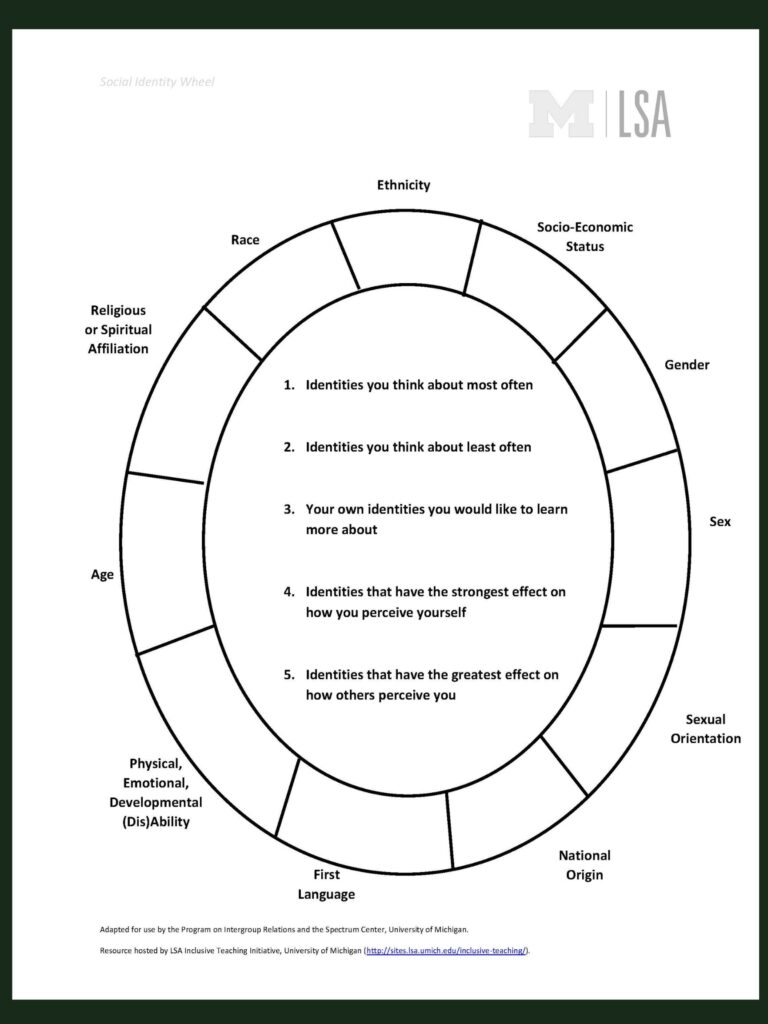
For these teens as young as 14, they faced the task — in the early morning class of Spanish II on Thursday, Oct. 13 — of identifying their “Social Identity Groups,” including their “Sexual Orientation,” with this wide array of confusing choices: “Lesbian,” “Gay,” “Bisexual,” “Heterosexual,” “Pan-Attractional,” “Attractionality” and, in case those didn’t cover it, “Questioning.”
For their “sex,” these young students had “intersex” among their choices, along with female and male.
For gender, they had “Woman, Man, Transgender, Post-Gender.”
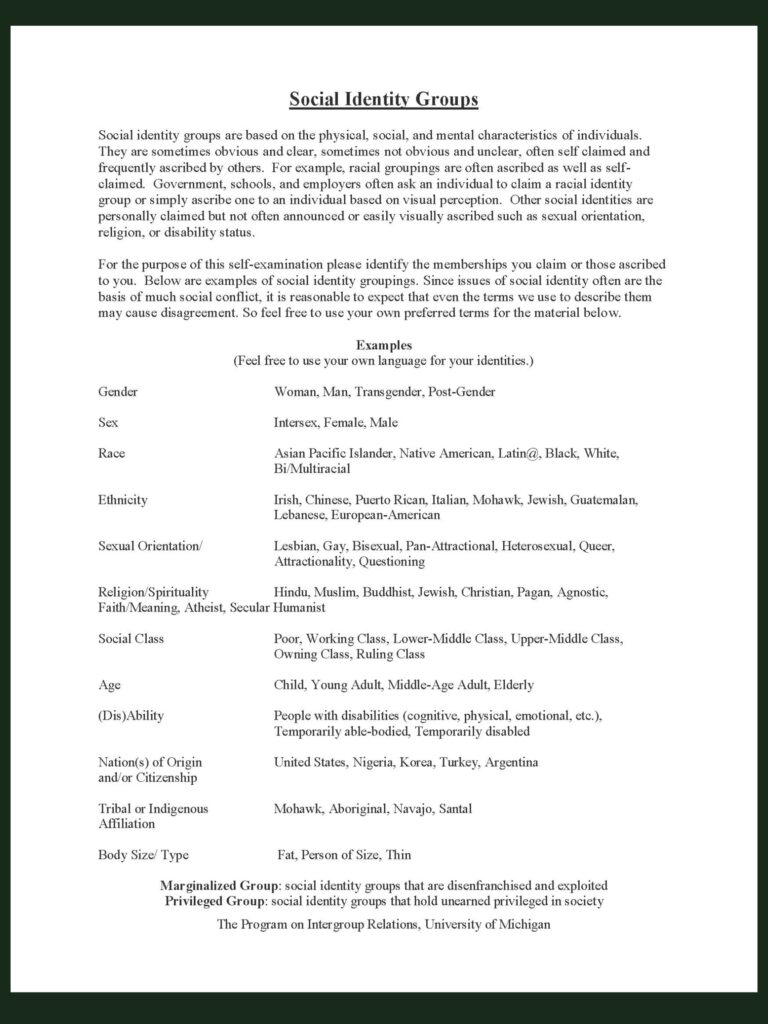
Despite body image being such an issue, especially among teen girls, the students were offered a “social identity group” of “Body Size/ Type,” with “Fat,” “Person of Size,” and “Thin” as examples. One irked Langley mother said, “Really? With all of the body-shaming that girls already feel?”
In the Langley High School community, many parents settled in the nation’s capital to affect U.S. and global policy in high-level posts from the White House, Congress, Defense Department, and even the CIA. These parents work at law firms, media companies, and government contractors, but, like youth everywhere, their children experience the same, complicated lives of teens, with depression, anxiety, and growing pains.
In the oversimplification of societal dynamics that activists have increasingly imposed on children, the Spanish II students also had the task of identifying their “Social Class,” with choices including “Poor,” “Working Class,” “Lower-Middle Class,” “Upper-Middle Class,” “Owning Class,” and “Ruling Class,” another judgment on the young people.
To cap off this exercise, their teacher, Teresa Quigley, instructed them to ponder if they were in a “marginalized group” that is “disenfranchised and exploited” or a “privileged group” with “unearned privileged” status in society. Students looked at each other, confused about what they were doing.
“What does any of this have to do with learning Spanish?” a local mother asked.
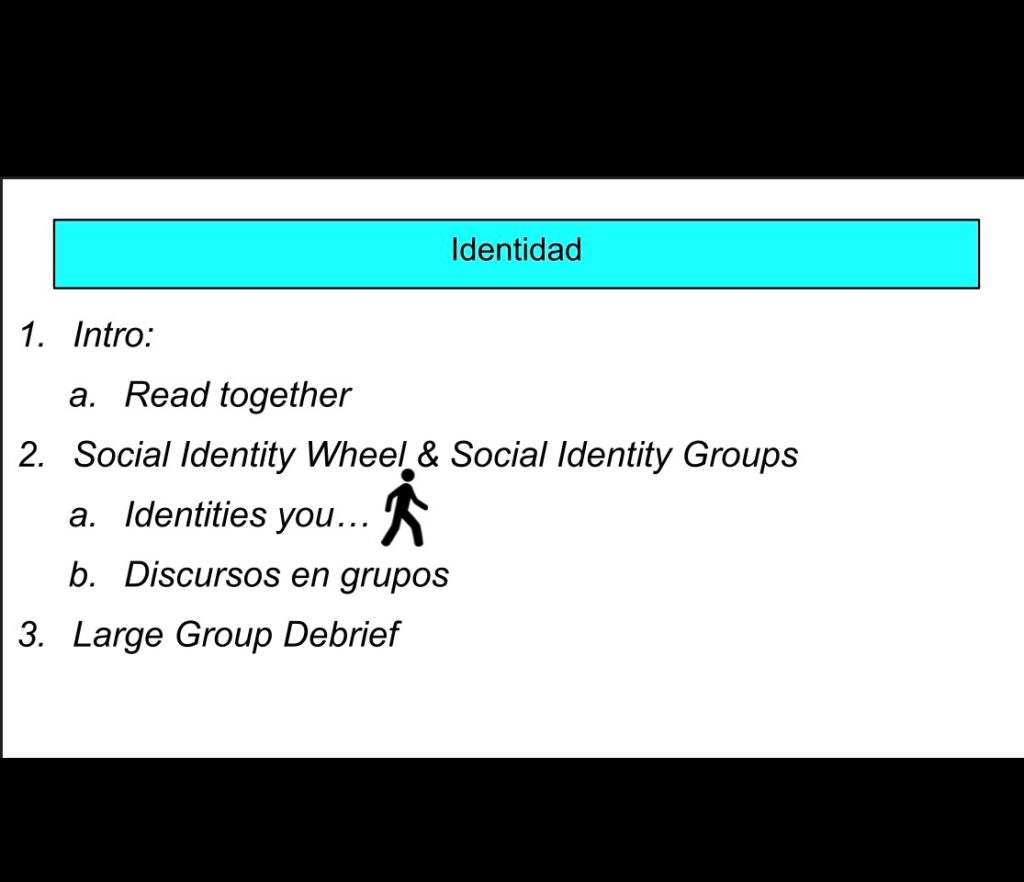
To parents and alumni, this kind of subversion of a simple Spanish lesson is emblematic of the national assault on education that led this week to the results the U.S. Education Department released in “The Nation’s Report Card,” with historically low performances by students in math and reading, including in Virginia. As much as teachers union leaders and too many Democratic politicians insist the teachings of critical race theory are not taught in K-12 classrooms, this type of lesson is exactly how students are introduced to concepts key to critical race theory.
The lesson is a stark reminder that, while Virginia is an inspiration to many after Republican Glenn Youngkin won the governor’s race in 2021, parents must remain vigilant. It’s stealth lessons like this one that distract students when they are learning, introduce them to ideas that aren’t age-appropriate, and divide students, rather than connect them.
Fairfax County Public Schools (FCPS), the Langley principal, and the Spanish II teacher didn’t immediately respond to requests for comment.
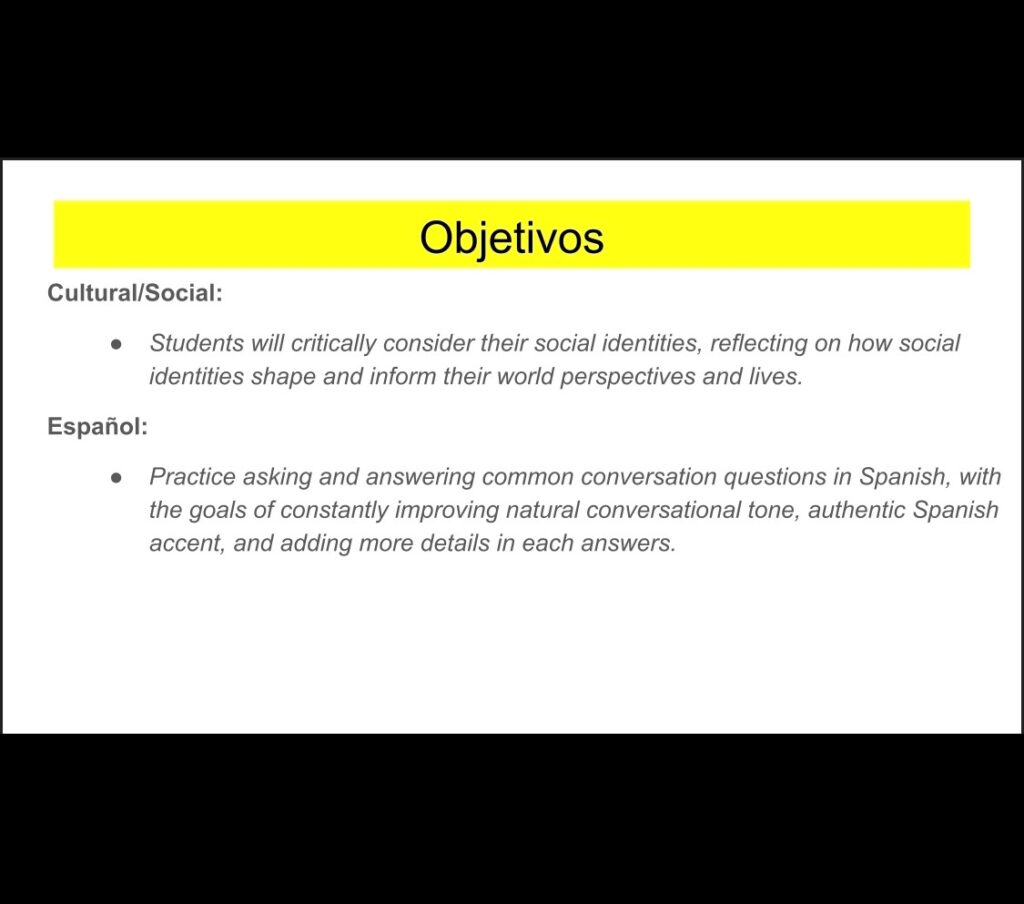
Many years after its abandon, it feels as if the dunce cap is returning to K-12 schools. Earlier this year, FCPS officials received a well-earned rebuke when students had to participate in a “Privilege Bingo” lesson with “military kid” included among categories of “privilege.”
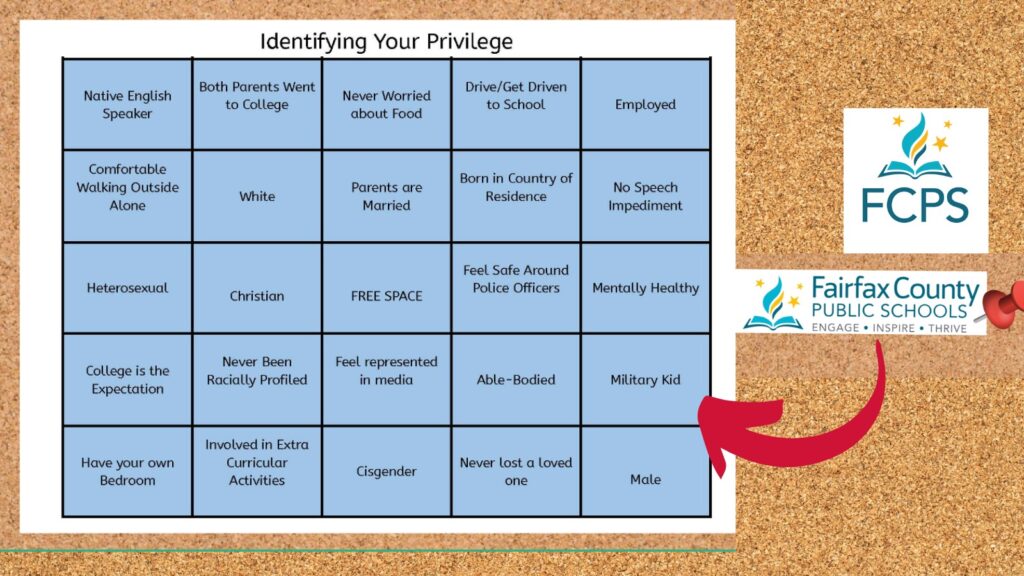
Jody Hand, a class of 1987 graduate of Langley High School now living in Florida, got wind of the newest lesson and told me, “This befuddled teaching is going to completely dismantle public education. We used to be revered as one of the best high schools in the country. Now, we are a joke. It’s embarrassing.”
We got a copy of the lesson at Independent Women’s Network when it was shared among local parents who have organized to fight back. Asked about the lesson, Langley Principal Kim Greer told a parent that the teacher said the lesson was “optional” and, anyway, it was aligned to Virginia teaching standard No. 2, “Compare Intercultural Behaviors,” of its World Language Standards of Learning.
That supposed alignment seems like an afterthought — and not accurate anyway. The learning standard’s objectives say students should “recognize a few very simple behaviors in other cultures,” “identify familiar or everyday behaviors in other cultures,” and “identify and compare familiar or everyday behaviors in native and other culture.”
It’d be a stretch to say any of those objectives were met with this confusing class — or that the discussion is even appropriate for K-12 students, with students in the class telling parents they didn’t feel the exercise was “optional.”
Indeed, the “Social Identity Groups” lesson is adapted into a “Liberation and Equity Workshop” as “Pre-Work” for adults. It’s used by a consultant, Darnell T. Williams, founder of DTW Equity Consulting, which is “committed to education for social justice.” The “Social Identity Wheel” has emerged in trainings — with adult learners, not K-12 students — at Harvard University, the college sorority Alpha Epsilon Phi, Rio Salado College in Tempe, Arizona, and “Privilege and Systems of Power” with the United Way for Southeastern Michigan, and, days after the Langley lesson, with a college #NCAAInclusion campaign.
Under a new school district contract with Schoology, Fairfax County parents are supposed to be able to see what their children are learning. Indeed, the Oct. 13 Spanish II lesson online included eight pages. But a key element — the “Social Identity Groups” and “Social Identity Wheel”— weren’t in the online lesson plans.
The “Cultural/Social” objective noted students would “critically consider their social identities, reflecting on how social identities shape and inform their world perspectives and lives.” The Spanish objective was to practice asking and answering “common conversation questions” in Spanish.
That’s when the course took a strange turn.
Reading from the lesson, the teacher spelled out that “social identity groups” are based on “the physical, social, and mental characteristics of individuals,” “sometimes obvious and clear,” “sometimes not obvious and unclear,” “often self claimed,” and “frequently ascribed by others.” The introduction continued, “Government, schools, and employers often ask an individual to claim a racial identity group or simply ascribe one to an individual based on visual perception.”
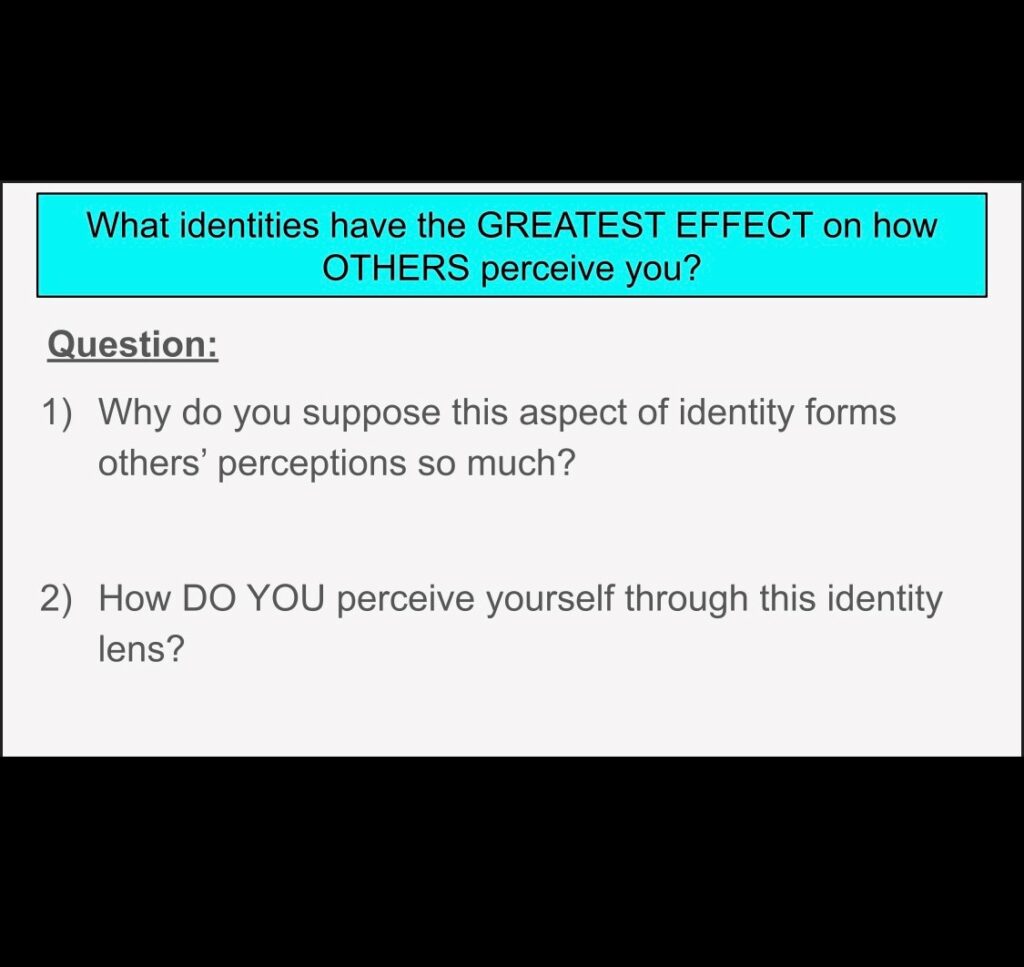
Then, the teacher continued: “Other social identities are personally claimed but not often announced or easily visually ascribed such as sexual orientation, religion, or disability status.”
In class, the teacher instructed the students to follow the worksheet’s directions and do a “self-examination,” identifying “the memberships you claim or those ascribed to you.”
Ironically, a longer lesson plan distributed by the University of Michigan’s Inclusive Teaching Initiative in its College of Literature, Science and the Arts, warns among its “challenges” that students “may not perceive the activity as relevant to the course and thus may exhibit resistance.”
Indeed, as the students headed onto Georgetown Pike to head home that evening, confused about what they had learned that day in Spanish II, at least the warning from the lesson rang true.





Comments are closed.